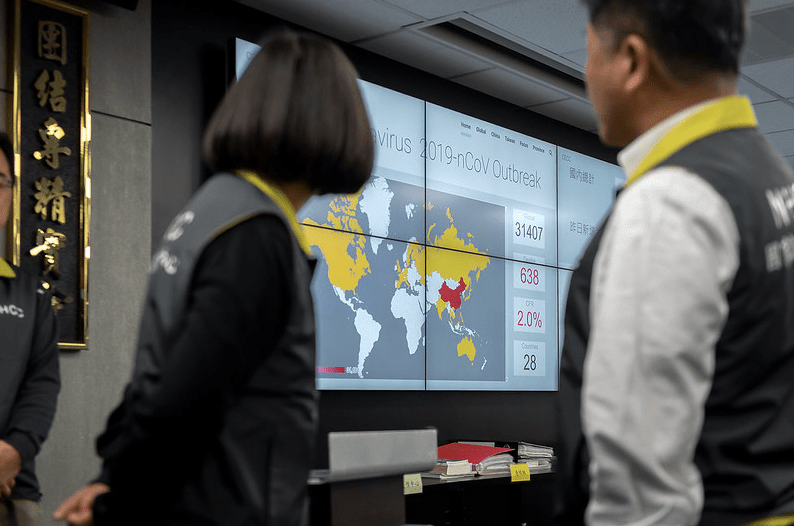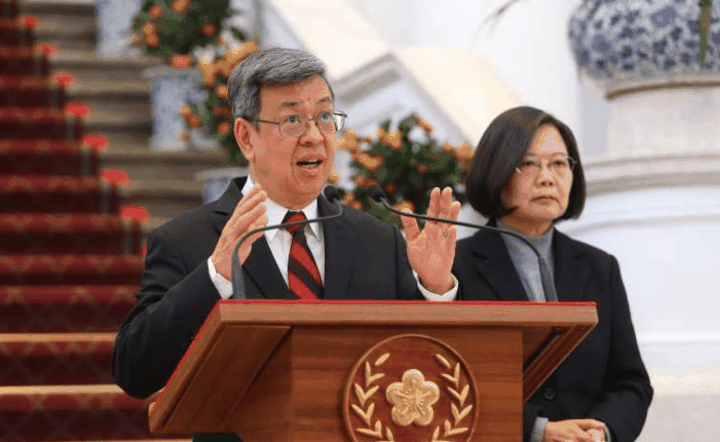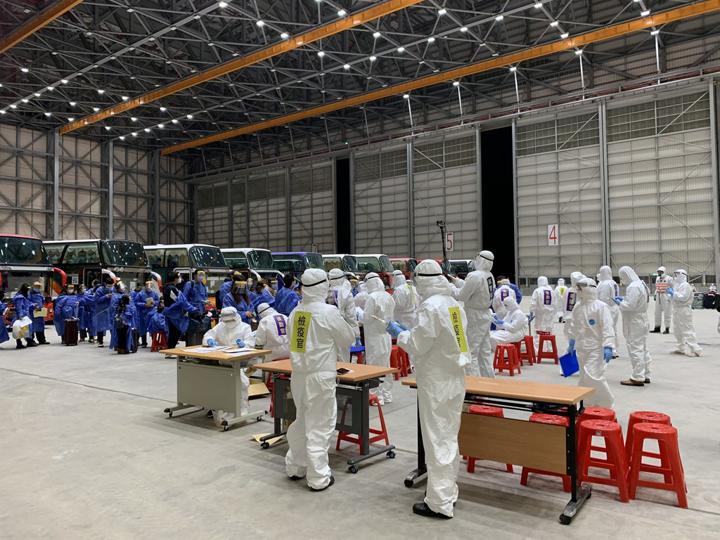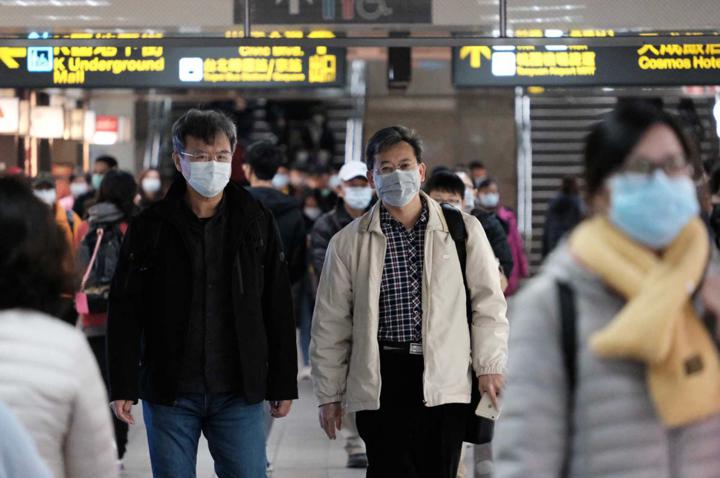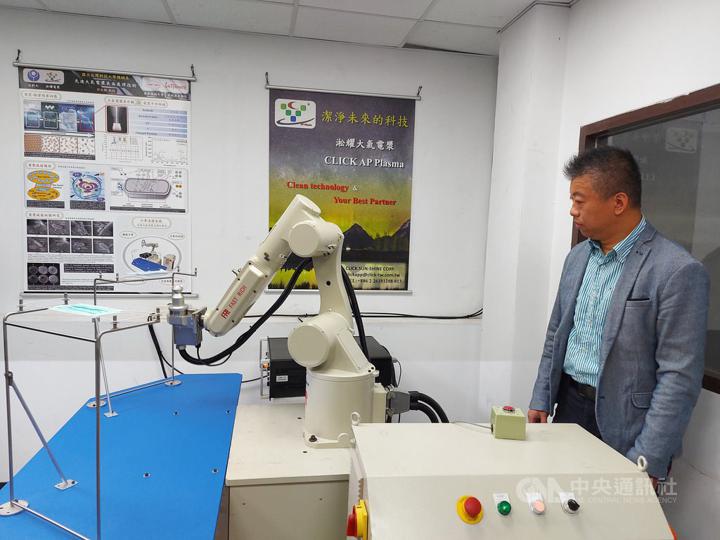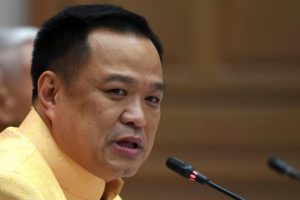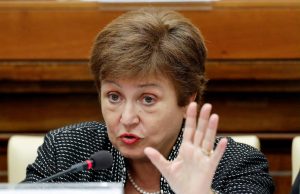While nations across the globe are battling to contain the novel coronavirus, Taiwan has emerged as a “clean spot” sitting on the edge of mainland China, where the first infections surfaced at the end of 2019.
The self-governed island with a population of 23.3 million has only 100 confirmed cases as of Wednesday, compared with much higher tallies in smaller city-states like Hong Kong (181) and Singapore (266).
The 180-kilometer-wide strait has been a natural buffer to fend off the pneumonic pandemic which ravaged mainland China, especially in January and February. But the government must also be given credit for its early intervention and travel curbs that have managed to forestall a local outbreak. The frequent flow of people across the strait could otherwise have spread the contagious pathogen, known as Covid-19, on the island.
International scholars have heaped praise on Taiwan’s “exemplary” response to the viral threat, saying the island offered a model of how a genuine democracy can marshal its people and resources, as opposed to the draconian measures like city lockdowns being enforced by authoritarian regimes like China, as well as in Europe.
Respond quickly
In an article published in the Journal of the American Medical Association on March 3, co-authors Jason Wang and Robert Brook, who are with Stanford University and the University of California, Los Angeles, said: “Taiwan is an example of how a society can respond quickly to an emerging crisis.”
Taiwan began screening passengers flying in from Wuhan, the central Chinese city believed to be the breeding ground of the virus, as early as on December 31, the article, titled Response to COVID-19 in Taiwan: Big Data Analytics, New Technology, and Proactive Testing, said.
Taiwan’s screening expanded in the following week to include anyone who had a recent history of travel to the city and the rest of China’s Hubei province, and more measures inducing border controls, quarantine and school closures soon followed, when the island reported the first infection, in which a Taiwanese living on the mainland came down with the respiratory disease in January.
One highlight of Taiwan’s information dissemination was the televised daily press briefings frequently convened by Vice-President Chen Chien-jen, an epidemiologist by profession, whose clarifications and health advise rammed home the risks facing Taiwan and how to stay protected. Chen was Taiwan’s health chief during the SARS outbreak in 2003.
“Through early recognition of the crisis, daily briefings to the public, simple health messaging for timely and accurate information regarding the evolving epidemic, Taiwan has minimized the risk of more imported cases and ensured the peace of mind for its people,” the article concluded.
-
![]()
Taiwan’s Vice-President Chen Chien-jen holds a press briefing on the viral outbreak. President Tsai Ing-wen is behind him. Photo: Handout
-
![]()
Taiwan’s paramedics wearing protective suits conduct temperature screening on Taiwanese stranded in Wuhan, before they are flown back to the island. Photo: CNA
-
![]()
Masked commuters in an underpass in Taipei. Photo: CNA
Meanwhile, Taiwan has moved to bar all foreign nationals from entering, starting from Thursday, in response to a spike in confirmed cases among recent visitors to the island, and Taiwanese returning from overseas will be put under compulsory home quarantine for 14 days, the usual incubation period of the disease, with a government allowance of NT$1,000 (US$33) per day.
In an interview with Taiwan’s semiofficial Central News Agency, Jason Wang, an associate professor of medicine at Stanford, said the United States should, on top of its existing Centers for Disease Control and Prevention, set up a high-powered, overarching central command center with authority over local officials like the one in Taiwan, to tackle the worsening Covid-19 crisis.
The White House coronavirus taskforce headed by Vice-President Mike Pence is at the federal level and has little if no jurisdiction over individual states, leading to disparities in how different states implement measures and contingency plans, according to the scholar.
Command centre
Robert Brook, a professor of medicine and public health at UCLA, also noted in an interview with the Stanford Health Policymagazine that Taiwan got ahead of the epidemic by setting up a command center to facilitate rapid communications with local governments and with the people, but in the US a real-time sharing of intelligence among states, the federal government as well as the White House was still lacking.
The US’ count of infections had reached 6,522 as of Monday, with many suspecting the figure was on the conservative side due to the lack of testing kits, a challenge acknowledged by US health officials.
In a separate development, the National Taiwan University of Science and Technology has unveiled a mask disinfection machine, with engineers hoping the device can help address the supply crunch when demand constantly outstrips production turnout.
Professor Joseph Kuo with the Department of Mechanical Engineering said the atmospheric pressure plasma mask disinfection machine is capable of killing bacteria and eliminating odors in about 20 seconds, allowing for re-use of otherwise disposable surgical masks.
Kuo told reporters that plasma has long been used to sterilize fragile items such as eggs and medical devices, which can generate an electric charge to eliminate bacteria.
-
![]()
Using plasma, the machine can disinfect a used mask in about 20 seconds. Photo: CNA
“With the plasma disinfection technology and robotic arms for automation to reduce cross-contamination, the machine is more efficient than ultraviolet rays and alcohol and will not damage the fabric of masks,” Kuo said. He added that the machine can also be used to detoxify discarded masks from hospitals before they are sent to landfills.
With the help of local companies, the university can produce the device at a cost of around NT$1 million (US$33,000) per unit, and Taiwan’s health ministry is reportedly considering procuring the devices for hospitals and community centers islandwide.
All surgical masks produced on the island are currently requisitioned by the government and rationed to the public, while priority is being given to supplying hospitals and nursery homes.




